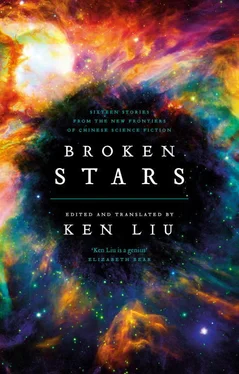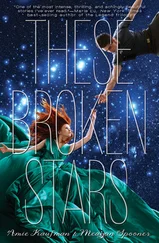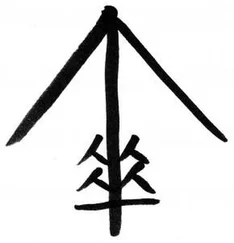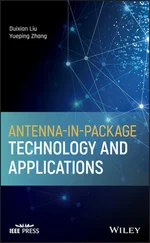Thanks to the prosperity of Chinese science fiction in recent years, new awards keep appearing. For example, The Morning Star & Jinkang Award was established in 2015 by Science & Fantasy Growth Foundation; The Coordinates Award was established in 2015 by several hard-core fans; and Union Writing Competition was established in 2012 by a group of fans in Sichuan University and renamed as Masters of the Future Award in 2016 by the same crew, who started their own company to build both an online hub and an offline space for science fiction fans.
In the history of Chinese science fiction, three international conventions were held in China: the annual conference of World SF in 1991, the 1997 Beijing International Conference on Science Fiction, and the 2007 International SF&F Convention. Yang Xiao, the president of Science Fiction World at the time, attended the annual conference of World SF in 1989 in San Marino and won the hosting right for Chengdu, China, in 1991. Yang was not fluent in English, and neither had she attended international professional conferences before. There were both domestic and foreign obstacles, but Yang and her team fought hard to conquer both. The conference was largely supported by the government and turned out to be a great success.
The ’97 Beijing International Conference on Science Fiction was also organized by Science Fiction World and supported by the China Association for Science and Technology. It played an important role in promoting science fiction culture in China. One of the results of the conference was the rocketing of sales of Science Fiction World .
The 2007 International SF&F Convention was organized by Science Fiction World in Chengdu just before Nippon 2007, designed to promote science fiction culture. That year, European and American writers visited China before heading over to Worldcon in Japan.
6.
CONTEMPORARY CHINESE SF FANDOM
There is a bus theory describing Chinese SF fans. The fans’ love toward science fiction is just like taking a bus. When they are young, they get on the bus and start to read science fiction. When they grow older (and reach their destination), they stop to read it and get off the bus. It is true that the majority of the readers of Science Fiction World are middle school, high school, and university students. In comparison, adult fans read more foreign SF works, either in English or in Chinese translation.
Active SF fans do exist, but despite this, no regular national “cons” have been established. University SF clubs prosper and decline. Regional fan groups appear and disappear. Chinese fandom is quite dispersed, and it is hard to find a particular fan group in China with a “long” history.
However, two fan groups in China with a relatively long history function well to this day.
The first one is SF AppleCore. In 2009, SF clubs in four universities in Shanghai decided to collaborate and organize a big event. During the preparation of Shanghai Science Fiction and Fantasy Festival (SSFFF), AppleCore was founded as the association of university SF clubs in Shanghai. SSFFF was held in 2009 and annually from 2011 till now. It is based in universities, and most of the organizers and attendants are university students. During the weekends of a certain month, usually May, various events like debates, panels, lectures, and LARPs (live action role-playing games) are held in member universities, organized by university SF clubs. A single event can attract 30 to 200 attendants, depending on the guests and contents.
AppleCore has grown to be more than an association of university SF clubs. In October 2013, AppleCore started monthly meetings targeting alum fans. Usually, during these gatherings, there are movie screenings and themed lectures, panels or short talks in the afternoon and dinner in the evening. The topics explored range from science to fantasy, and from art to astronomy. Some examples include: a screening of the movie A Scanner Darkly would be followed by a lecture on Philip K. Dick; talks on depression and autism; a visit to the contemporary art exhibition “Heman Chong: Ifs, Ands, or Buts”; and a steampunk accessories DIY workshop. On average, 30 to 120 members show up for the afternoon activities, and 5 to 20 stay for dinner.
In November 2014, the AppleCore Reading Group was formed. Fans are encouraged to read a specific book every month and meet to discuss it. The very first discussion was on The End of Eternity by Isaac Asimov. Annihilation by Jeff VanderMeer was discussed in December 2015. A special discussion on Chinese Nebula nominees was organized in September 2015, with a focus on Chi Hui’s Artificial Human 2075: Awareness Restructuring («伪人2075 :意识重组», 2014). The aim is for the reading group to start with a limited circle of members and gradually expand to a larger scale.
The AppleCore Writing Workshop was also established in 2015 as a trial and put into official operation in 2016. Small groups of writers meet monthly and discuss each other’s works.
AppleCore is not only the largest SF fan group in eastern China, but is perhaps also the one with the most international contacts. In its seventh year, it won the Gold Xingyun Award for Best Fandom in 2016.
The other organization is the World Chinese Science Fiction Association (WCSFA), our largest fan group, established in 2010 in Chengdu and registered in Hong Kong. AppleCore is more fan-driven and works as the regional fan hub in Shanghai, while WCSFA is an official organization and works as the national fan hub in China.
The World Chinese Science Fiction Association has around 300 members, and most of them are “professionals”: writers, translators, editors, researchers, etc. WCSFA has been organizing the Chinese Nebula Award every year since 2010. With the aim of nurturing Chinese SF, the organizing committee works hard to improve it year by year. The award ceremonies have been held in Chengdu, Taiyuan, and Beijing, and it is expected future ceremonies will travel to more cities.
What should also be mentioned here is that Beijing tried out the first Worldcon bid in China in 2014. Though we lost to Kansas City in the end, it was a good beginning, and we can now expect a large group of Chinese representatives at future Worldcons.
7.
CURRENT CHINESE SF IN LITERATURE AND ACADEMIA
Liu Cixin (刘慈欣) is the biggest name in contemporary Chinese SF thanks to his grand universe-spanning imagination. His “Three- Body” trilogy («三体»三部曲) is extremely popular and is due to be adapted into a six-part movie series. The English translation of the first book was published in November 2014—the first contemporary Chinese SF novel translated into English—and won a Hugo. The next two books were published in English in 2015 and 2016 respectively. [26] The first and third books in the series were translated by Ken Liu, and the second book was translated by Joel Martinsen.
Wang Jinkang (王晋康), who spent his twentieth year of writing SF in 2014, is another heavyweight in Chinese SF. His stories are deeply rooted in the tradition of realism and usually with a focus on biology. Some of his representative works include the short story “Adam’s Regression” («亚当回归», 1993) and the novel A Song for Life («生命之歌», 1998).
Han Song (韩松), who works for Xinhua News Agency, is known to have said that the news pieces he writes during the daytime are more science fictional than the science fiction stories he writes at night. His stories, influenced by Kafka, are unusual and surreal, and his pioneering writing style garners him special attention. Some of his representative works are the short story “Gravestone of the Universe” («宇宙墓碑», 1991) and the novel Red Ocean («红色海洋», 2004).
Читать дальше












